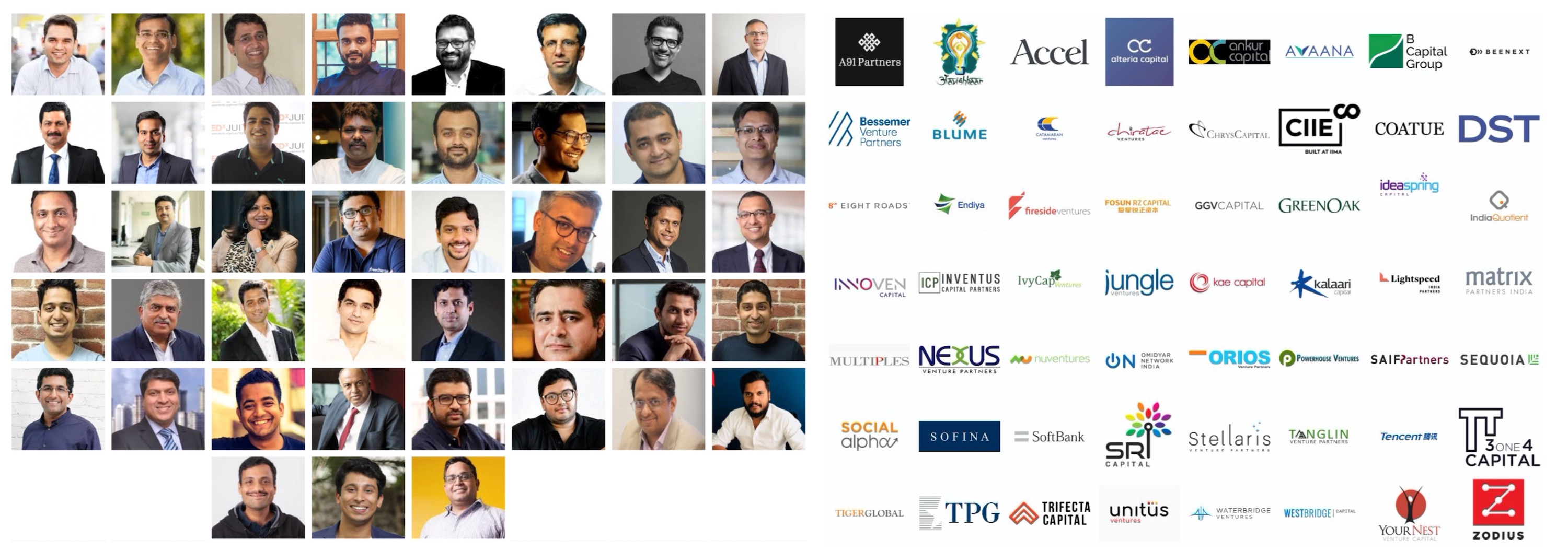More than 150 investors and entrepreneurs in India are funding dozens of projects in a bid to help millions better combat the COVID-19 epidemic and help the nation’s booming startup ecosystem withstand the economic devastation it has caused.
The investors said they have contributed 1 billion Indian rupees — or $13 million — of their own money to the ACT Grants initiative, which was unveiled late last month.
The group — which includes several prominent industry figures including Nandan Nilekani, Paytm’s Vijay Shekhar Sharma, Flipkart’s Kalyan Krishnamurthy, Oyo’s Ritesh Agarwal, Udaan’s Sujeet Kumar, Freshworks’ Girish Mathrubootham, CRED’s Kunal Shah, and Times Internet’s Miten Sampat — has funded 32 projects to date.
These projects span six themes, including solutions that could help curtail the spread of the Covid-19 disease, development of testing and detection kits, building medical equipment such as ventilators, and taking care of mental health.
The group came together last month when India had just begun to see cases of the coronavirus disease.
“As governments across the globe started to take measures to combat this pandemic, one thing that came up in our conversations with other investors, startup founders, and startup employees was this urgency to not sit and watch what the government does but help and pitch in as an industry,” said Dev Khare, a partner at Lightspeed Venture Partners, in an interview with TechCrunch.
There have been 29,435 known cases of coronavirus in India, according to the Ministry of Health and Welfare. As of Tuesday evening, at least 886 people had died.
Investors from dozens of venture capital and private equity firms including Accel, Lightspeed Venture Partners, Bessemer Venture Partners, Matrix Partners India, Kalaari Capital, Eight Roads Ventures, 3One4Capital, Sequoia Capital India, and Tiger Global have personally participated in the initiative.
VCs in India moved quickly last month to warn startups in the country to be aware of the effect the pandemic might have on their businesses — despite the record $14.5 billion Indian startups raised in the past year.
In a joint letter earlier this month, several prominent tech investment funds told startup founders that they may find it especially challenging to raise fresh capital in the next few months as they enter the “worst period.” (They have also requested the government to provide a relief package.)
Several trade bodies including Nasscom and TIE Global that count American tech giants such as Facebook, Google, and Amazon among their members are also supporting ACT Grants. Amazon’s AWS additionally is helping these projects with infrastructure services.

On left, some of the startup founders and other industry figures who have contributed to ACT Grants. On right, names of VC and PE funds whose partners have contributed in their personal capacity
One of the projects to receive the grant has been developed by Pune-based MyLab, a startup that has emerged as one of the biggest manufacturers of test kits in India.
“They manufactured between 20,000 to 25,000 test kits last year. In the past few weeks, the number has ballooned to 300,000,” said Abhiraj Singh Bhal, co-founder and chief executive of Urban Company, which runs an online marketplace for freelance labor.
“We offered them the grant money, but also our expertise in scaling their operation,” said Bhal. ACT Grants also went to another six testing projects, he said.
Grants aren’t going solely to testing projects. StepOne, another grant-winning project, has built a cloud infrastructure to handle over 30,000 calls a day and offer telemedicine services to complement helpline numbers run by state governments that are struggling to keep up with high traffic.
And some of the projects that have received grants are developing masks and other items to supply enough protective gears to the healthcare workers. (A full list of the funded projects and the grant amounts they have received is here.)
There are no strings attached to these grants. Funding a project does not give investors any equity in the developer’s startup, said Prashanth Prakash, a partner at Accel in an interview. And there is a large team that screens and selects projects for providing grants, he said. They have received more than 1,500 applications to date.
An investor, who is not part of ACT Grants, said though the initiative is commendable, he believed this group could have made a bigger impact if they chose to help put food in front of hundreds of millions of Indians who don’t know where their next meal would come from. “There are better ways to be resourceful,” he said, requesting anonymity as he did not want to upset the community.
“That said, the fact that all of these people, many of whom aggressively compete for deals, have come together at all and contributed their own money — and not of their LPs — is unprecedented and they deserve all the praise and support,” he said.
The group’s influence and connection in the industry also means that these projects have better odds of seeing deployment at scale. The group is already engaging with various state governments and the federal government to explore ways to work together — and have started to make inroads, said Accel’s Prakash.
But as the projects scale, the group is seeking for more individuals from across the globe to contribute. “Anyone who wants to help India, one sixth of the world’s population, fight Covid-19 is welcome to contribute,” said Lightspeed’s Khare.
There’s even an international component for people outside of India to contribute. ACT Grants has partnered with United Way, a Virginia-based nonprofit that enables people outside of India to make charitable, tax-deductible donations.
https://ift.tt/35bPvRi Investors, startup founders in India pool $13M to fund projects that fight coronavirus https://ift.tt/3cZ6MjB













0 comments
Post a Comment